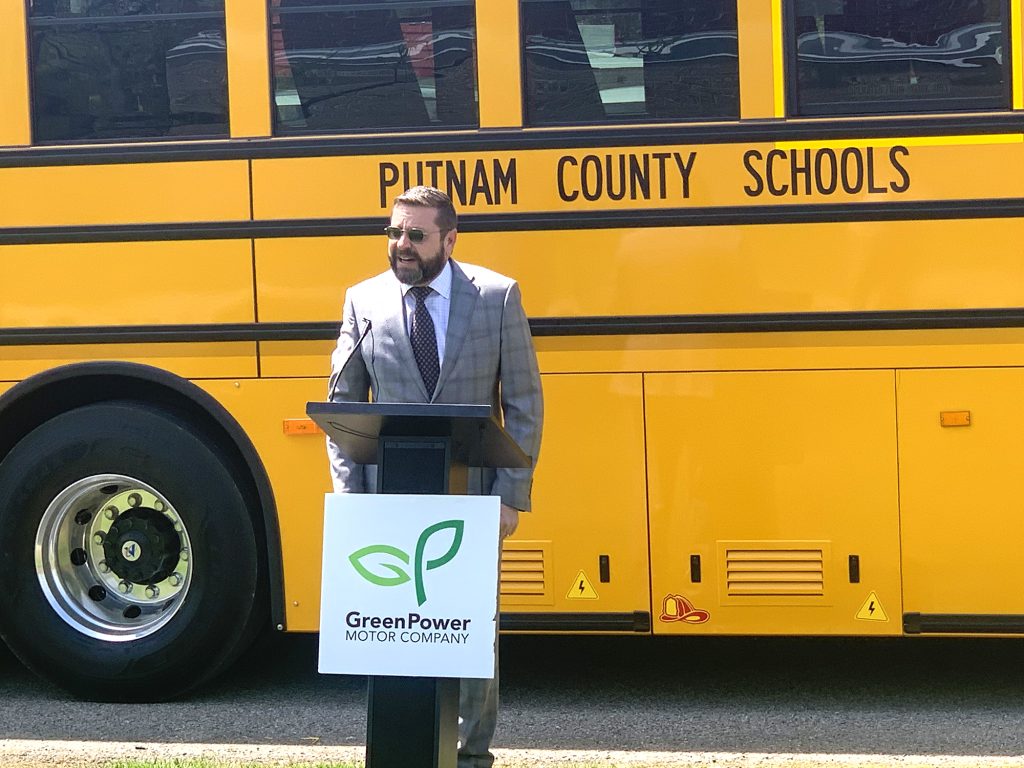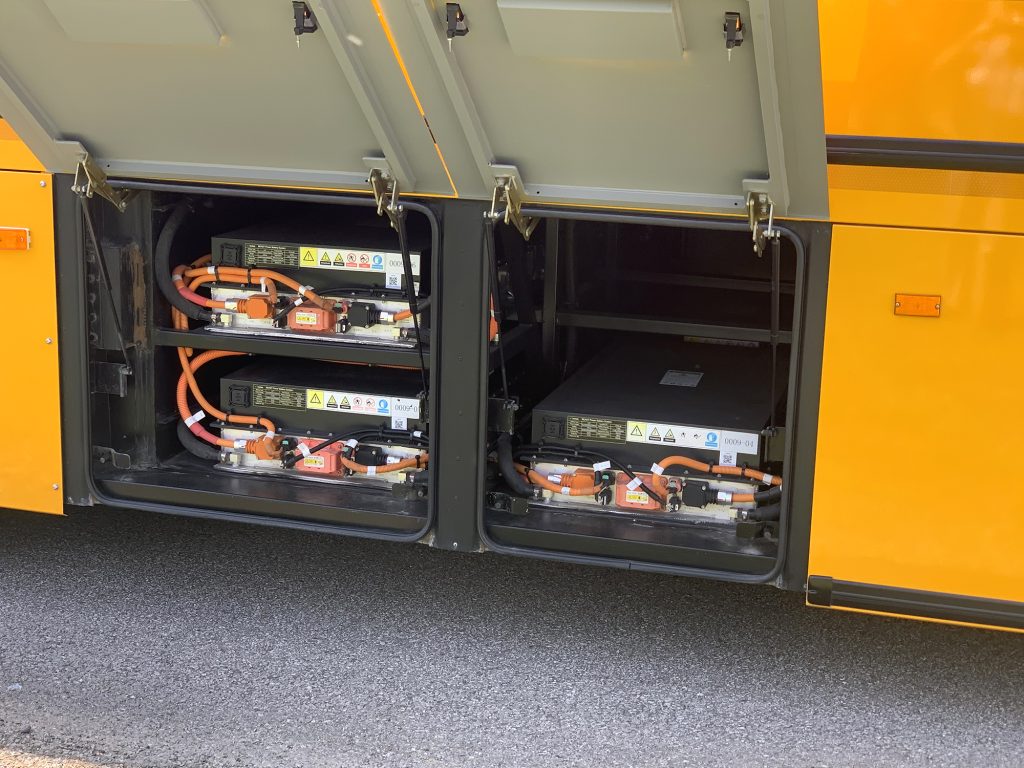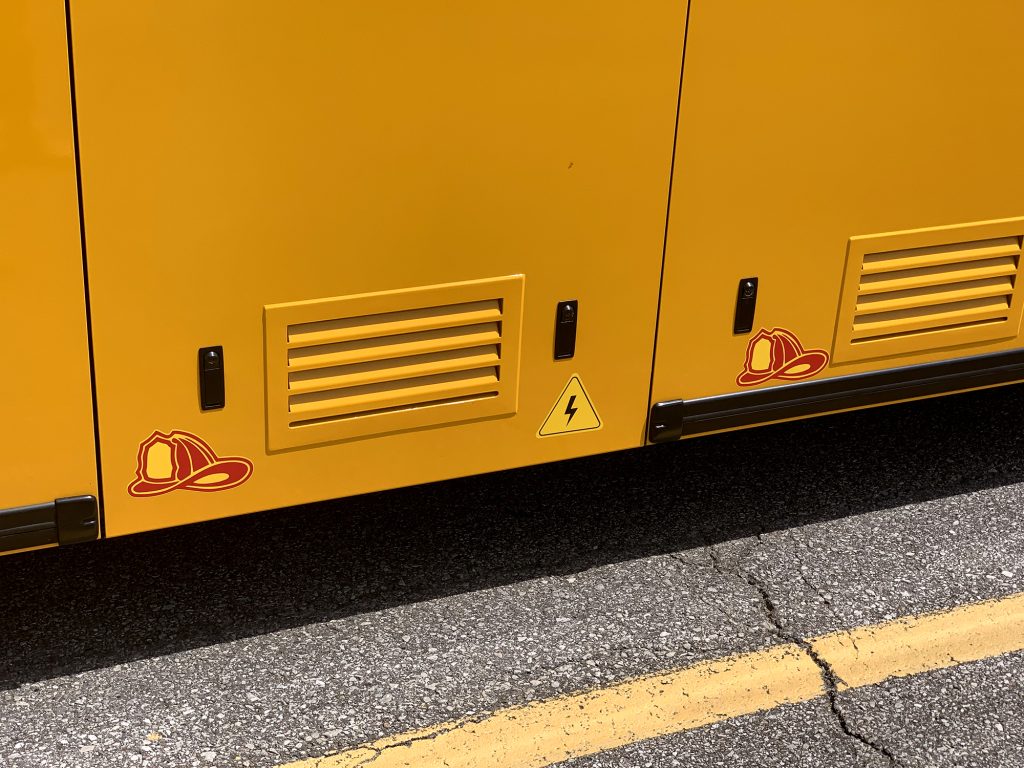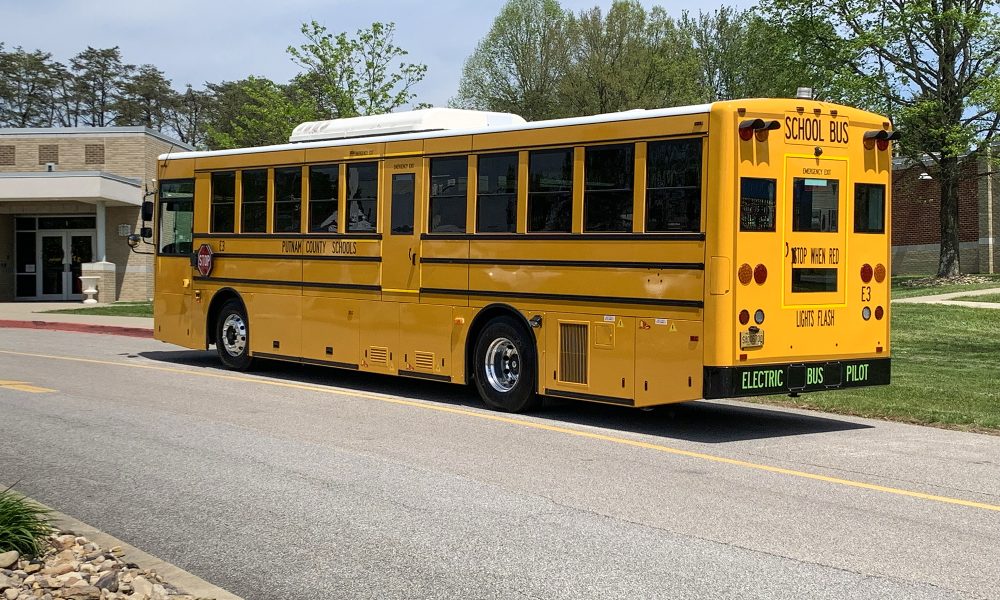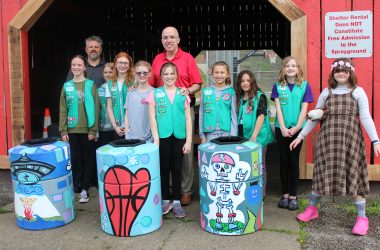This all-electric bus completed its first run on a Putnam County school bus route April 20th.
GreenPower Motor Company was unknown to West Virginians before the company signed an agreement to lease/purchase a 9.5-acre manufacturing facility at the old Ordnance Center in South Charleston in January of last year.
Since that time, the manufacturer and distributor of all-electric, zero-emission school buses has tested its BEAST and Nano BEAST vehicles in the winter cold and the snowy roads of mountainous Upshur County. On Thursday, April 20, GreenPower president Brenden Riley and vice-president Mark Nestlen met with Putnam County Superintendent of Schools John Hudson and other school officials at Scott Teays Elementary School to announce the expansion of the company’s pilot testing program to Putnam County.
“Putnam County Schools is proud to be able to provide new and innovative ways to serve our students and school communities. We are honored and excited to participate in GreenPower’s electric school bus pilot program,” Hudson stated.
Following the announcement school officials accompanied a small number of Scott Teays students on their first ride in an all-electric bus, a ride featuring air-conditioned comfort.
All-electric school buses are projected to replace diesel powered vehicles in time. Riley stated that New York has set a date by which all diesel buses must be replaced and that other states are making similar commitments. “Our plant in South Charleston is well-positioned to meet the all-electric bus needs of the entire area,” he added.
In a published statement, GreenPower CEO and Chairman Fraser Atkinson said, “Over the course of the 2022-23 school year our BEAST and Nano BEAST have proven their capabilities in cold weather, snowy conditions and mountainous terrain in both rural and urban counties across the state. In short, the GreenPower school buses have performed exactly as we expected them to. The pilot project has allowed more children to experience a healthier transportation alternative without sacrificing reliability for the school districts involved.”
GreenPower’s pilot program is also serving Calhoun, Roane and Upshur Counties for the remainder of the 2022-23 school year. The company supports the transition to electric buses by installing the proper charging infrastructure and the necessary training for a county’s first responders, mechanics and school bus drivers.
Riley said that batteries can recharged between morning and evening runs using low charging rate infrastructure. GreenPower buses have been relied upon for runs totaling 200 miles per day in western states. First responders must be trained to shutdown the electrical system and make necessary disconnections in emergency situations. Mechanic and bus driver training involves executing routine checks and procedures.
“There is a big savings in fuel cost with all-electric buses. The cost of electric per mile is about one-fifth that of diesel,” Riley stated. Electric vehicles are about twenty percent heavier than diesel powered vehicles. The extra weight is concentrated in front of the rear axels and makes for increased traction.
While all-electric buses provide clean, pollution free environment, the carbon footprint (carbon dioxide added to the environment) is not reduced when coal or other fossil fuels are used to produce the electricity. Approximately six pounds of coal is needed to produce the electricity needed to replace seven pounds of diesel fuel. Carbon dioxide emission reduction will require electricity generated by wind, solar or nuclear.
